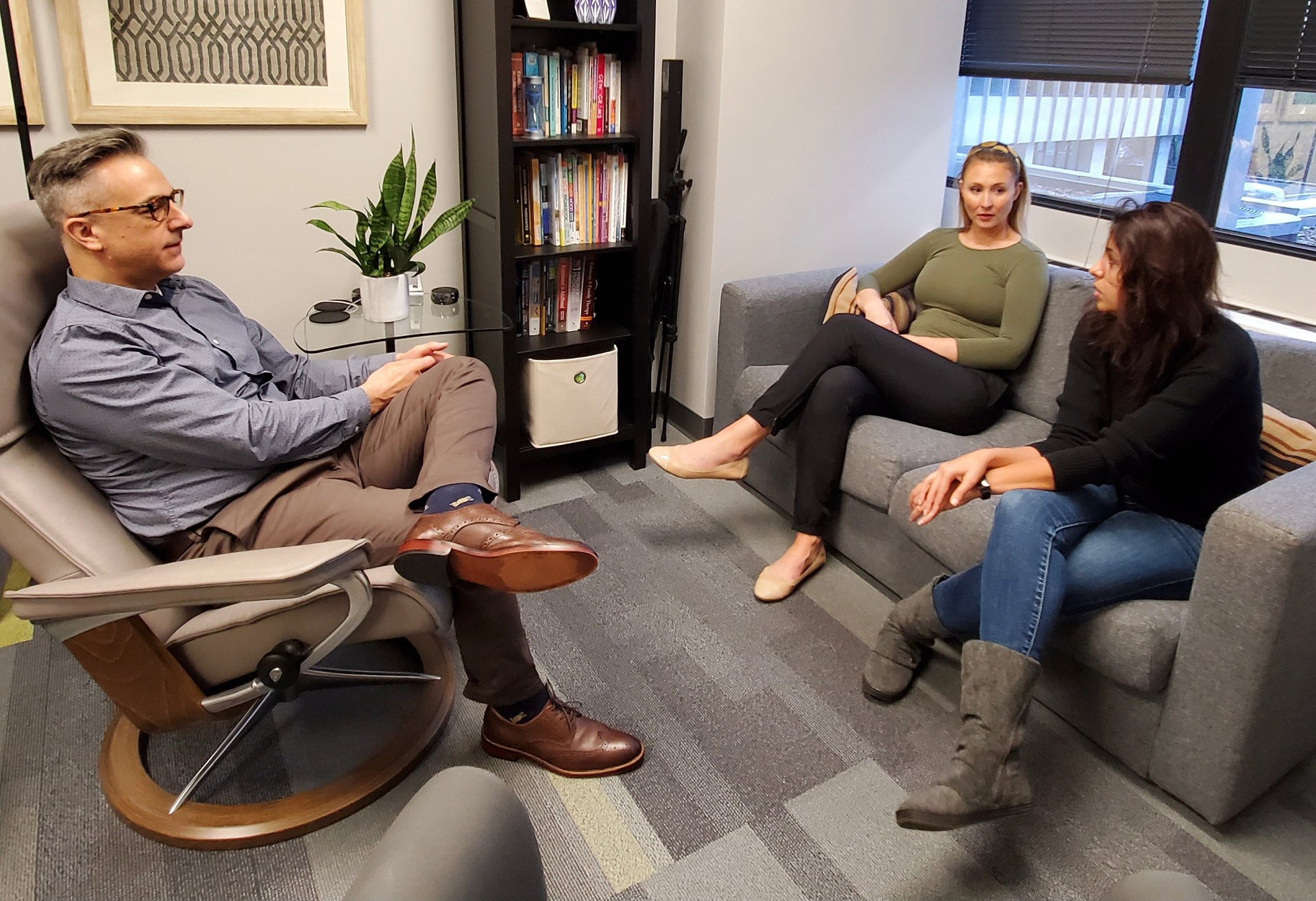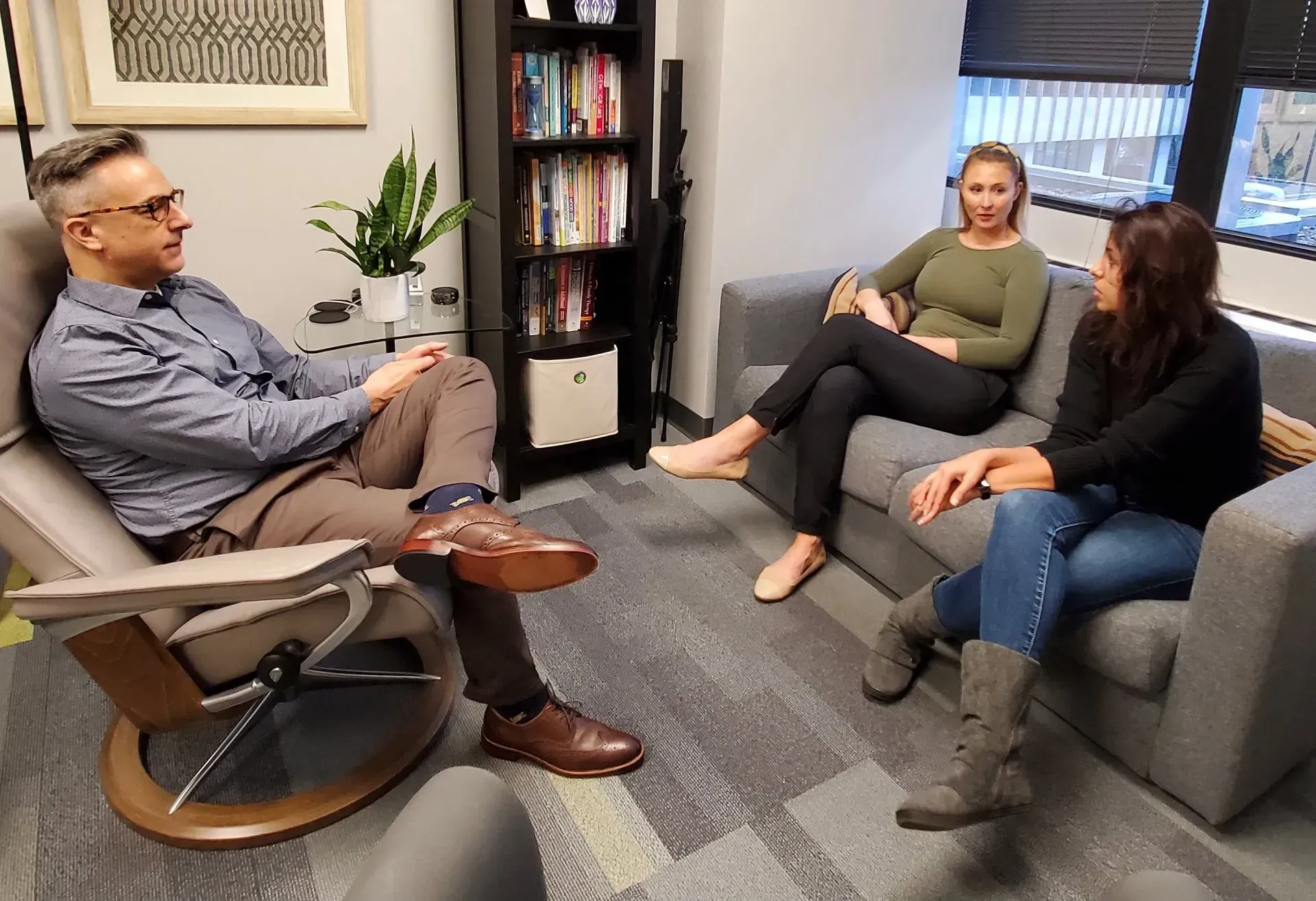Therapy is most effective when one is motivated to work on changing one’s role in problematic life patterns.
I
seek to collaborate with you in exploring these patterns, fostering increased understanding, and choosing the right path to improved well-being.
Tailored integrative Therapy
Paul DelGrosso LICSW LCSW-C - Individual and Family Psychotherapy

Schema Therapy
Schema therapy helps individuals identify and change negative, deeply ingrained patterns that often develop in childhood and contribute to ongoing emotional and relationship difficulties.

ABFT
ABFT improves family well-being by addressing unresolved core conflicts that lead to mistrust and distress in the parent-child bond.

CLINICAL HYPNOSIS
Clinical hypnosis relaxes the conscious mind so that the unconscious mind can open to greater self-awareness.

MBT
MBT helps individuals better regulate their emotions and improve relationships by enhancing self-awareness and empathy
PSYCHINSIGHTS BLOG
Together we can fortify your healthy adult mode in schema therapy, your ego-strength in clinical hypnosis, your discernment of mental states in MBT, and your healthy attachment needs in ABFT
"Your anger can help you to get in touch with the part of yourself that wants something different."
Jeff Young – ST
"The concept of differentiation has to do with self and not with others. Differentiation deals with working on one's own self, with controlling self, with becoming a more responsible person, and permitting others to be themselves".
Murray Bowen - BFST
“Self refers to the ability of a person to hold their own thinking and maintain independent functioning in relationships.”
Murray Bowen - BFST
“Resolving core family conflict and past traumas, and strengthening adolescent attachment to and trust in parents, can decrease depression in adolescents.”
Guy Diamond – ABFT
“We believe in experiential change, that people in the room could have an experience of each other, a more positive experience that could actually affect the way they think about themselves.”
Guy Diamond – ABFT
And we really start them out by having the adolescent turn to the parent and start talking about why it’s difficult for them to go the parent. As the therapist, I’m looking to see how is each person reacting, and I’m in it with them, I’m going to let conversation go on when its going well, but I’m also really making an attempt to make this conversation go different.”
Suzanne Levy – ABFT
“I might prompt parents to the type of questions they should ask, and this whole time I am having this conservation go between the parents and kid, I want to be out of it, I don’t want them talking to me because that is going to decrease emotionality.”
Suzanne Levy – ABFT
“Mentalization is the ability to ‘read,’ access, and reflect on mental states in ourselves as well as other people.”
Peter Fonagy – MBT
“Secure attachment, in its turn, provides the psychosocial basis for acquiring an understanding of mind.”
Peter Fonagy – MBT
“Insecurity in attachment relationships is a signal of limitation in mentalizing skills.”
Peter Fonagy – MBT
“Mentalization is intrinsically linked to the development of the self, to its gradually elaborated inner organization, and to its participation in human society, a network of human relationships with other beings who share this unique capacity.”
Peter Fonagy – MBT
“Ego-strengthening is the most important thing a therapist can do and when it is done successfully, it acts as an integrating mechanism that bridges the gap between insight and the actualization of change.”
McNeal & Frederick
“Visual guided imagery of secure attachment representations has been one of the most effective priming strategies and that repeated priming results in persistent effects…in trauma-related recovery.”
Louis Damis – Clinical Hypnosis
“Activation of attachment representations can influence memory consolidation and reduce unpleasant recollections and intrusions.”
Louis Damis – Clinical Hypnosis
“Visual guided imagery of secure attachment representations has been one of the most effective priming strategies and that repeated priming results in persistent effects…in trauma-related recovery.”
Louis Damis – Clinical Hypnosis
“Visual guided imagery of secure attachment representations has been one of the most effective priming strategies and that repeated priming results in persistent effects…in trauma-related recovery.”
Brown & Elliott
“We believe that increased organization of the mind per se has a positive treatment effect on trauma-related symptoms independent of trauma processing.”
Brown & Elliott
“The majority of empirically supported interventions for PTSD focus on recollection and elaboration of the autobiographical trauma memories. However, this intervention alone has not been found to consistently resolve PTSD… such interventions are not fully effective because they do not adequately address the representations of trauma in the implicit memory system.”
Louis Damis – Clinical Hypnosis
The application of the repeated imagery of ideal parent figures, imagery of secure attachment interactions allows the implicit memory system to internalize new internal working models, or remap them.”
Louis Damis – Clinical Hypnosis
"The feelings and emotions that we have, and that patients come into therapy for, often started in childhood and do not usually change without therapy."
Jeff Young – ST
“Change cannot be hit-or-miss. It requires constant practice.”
Jeff Young – ST
"Your anger can help you to get in touch with the part of yourself that wants something different."
Jeff Young – ST
"The concept of differentiation has to do with self and not with others. Differentiation deals with working on one's own self, with controlling self, with becoming a more responsible person, and permitting others to be themselves".
Murray Bowen - BFST





